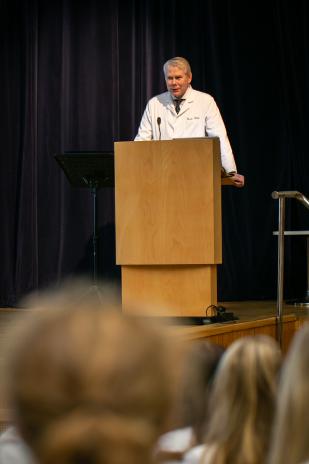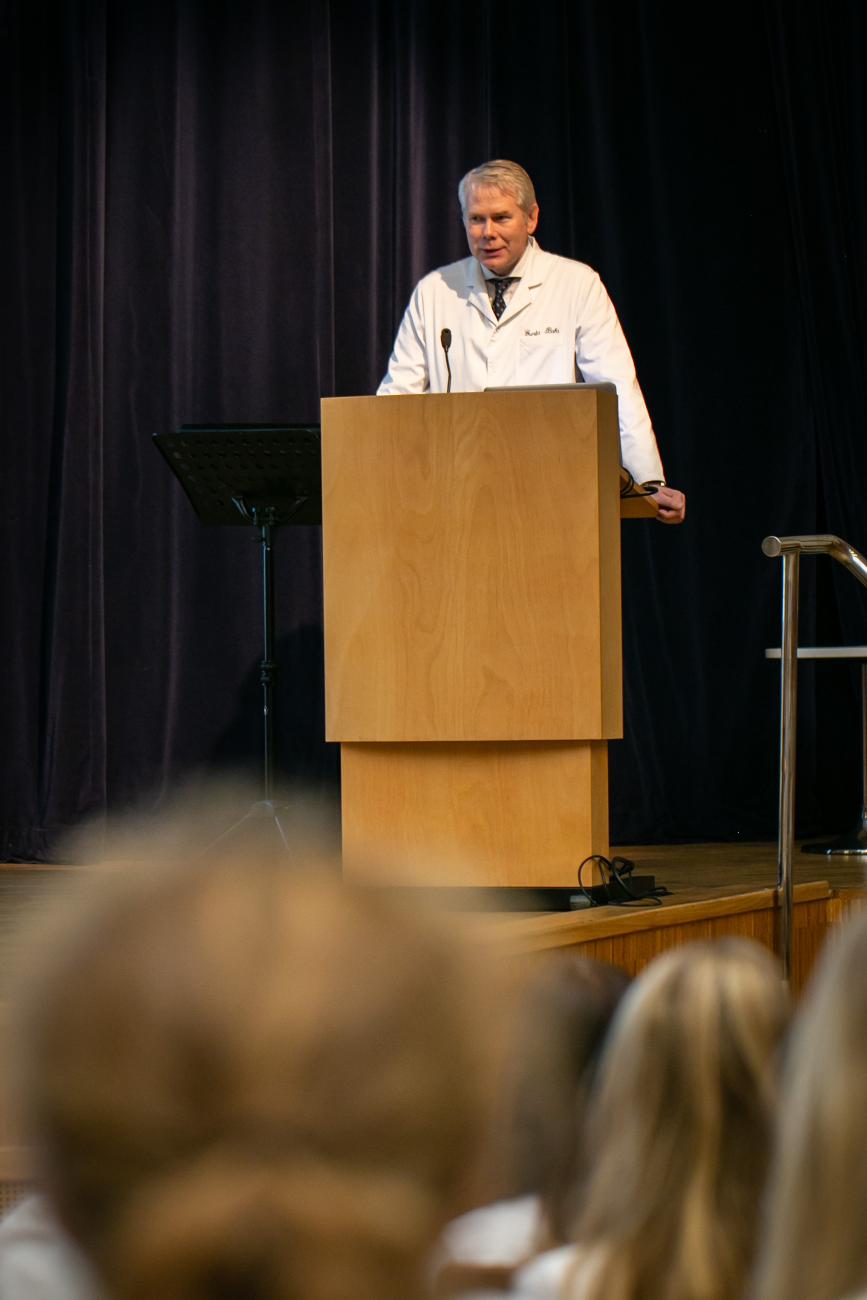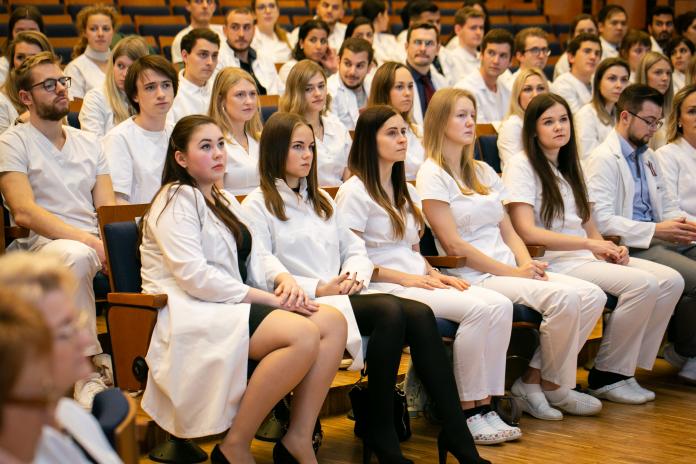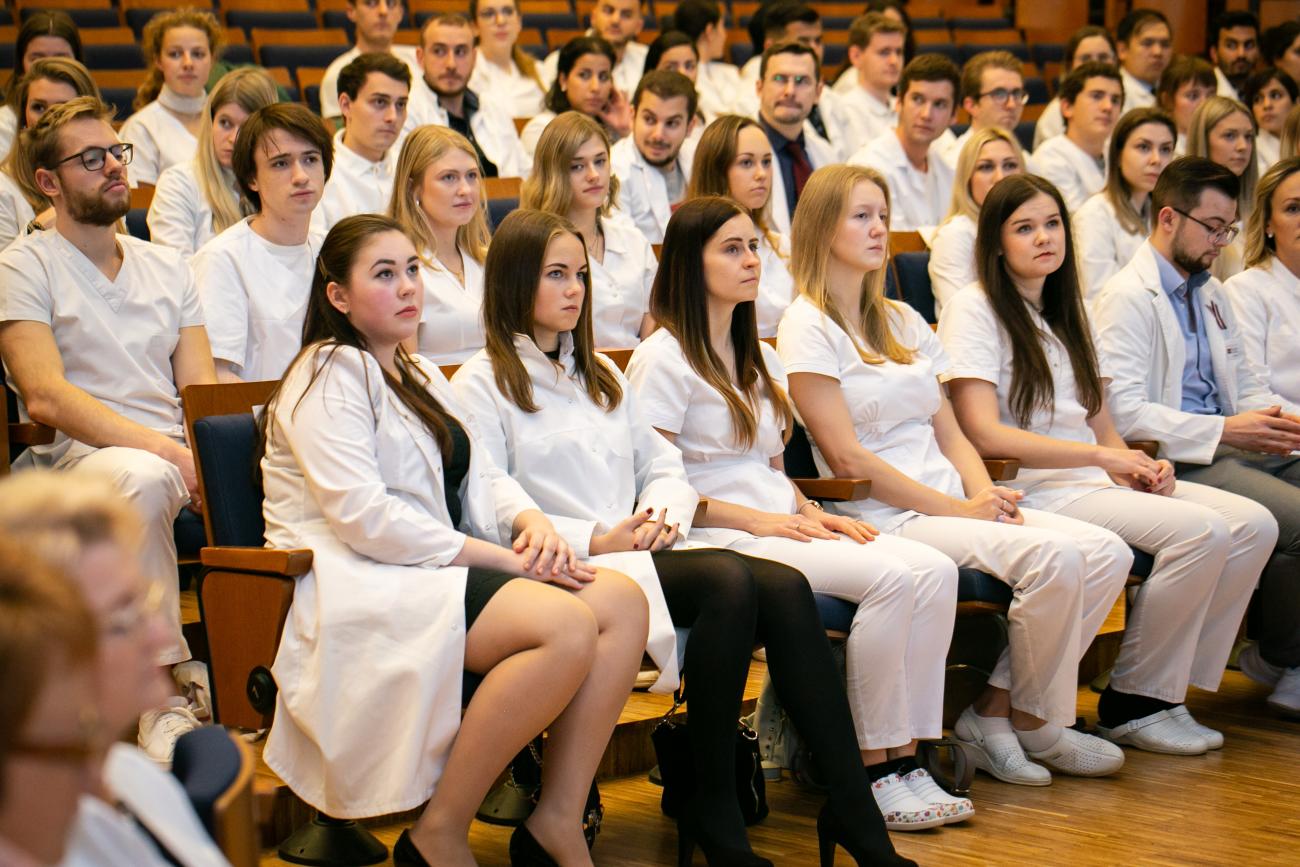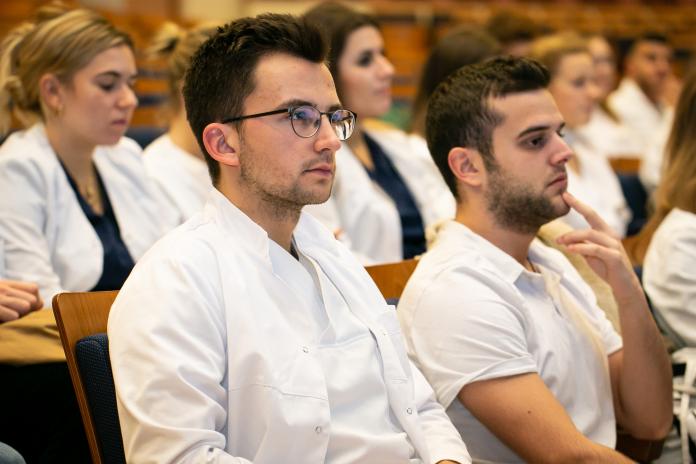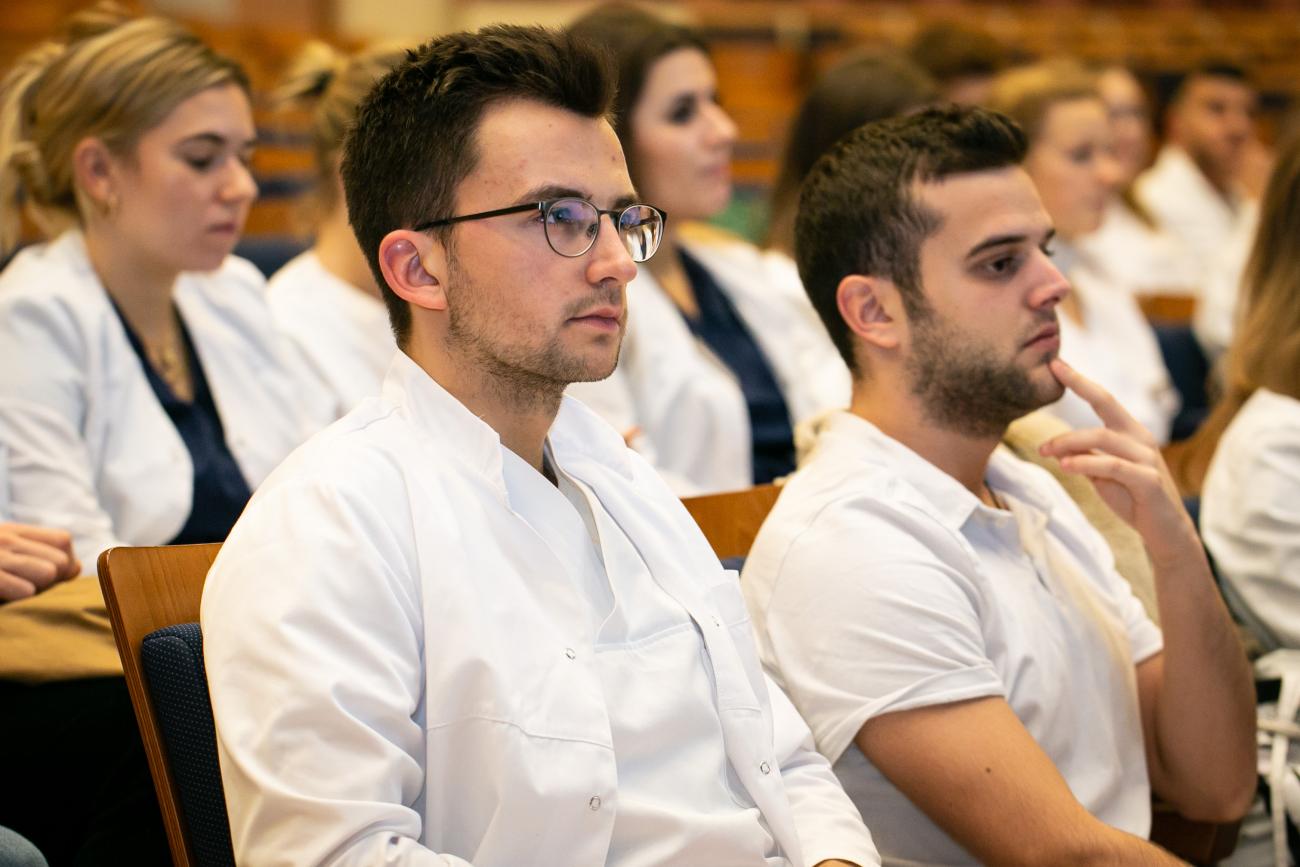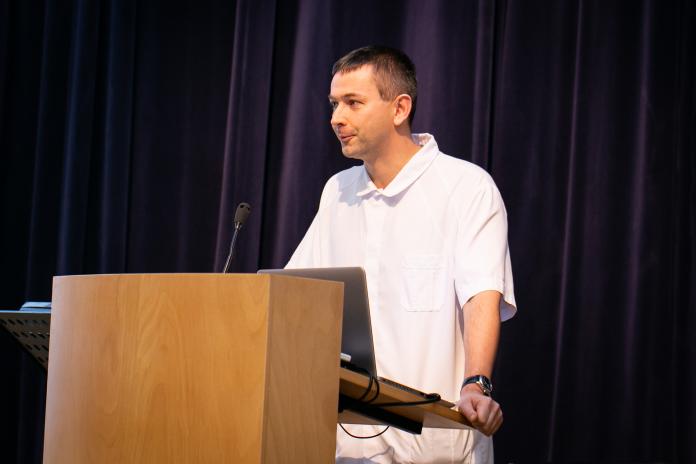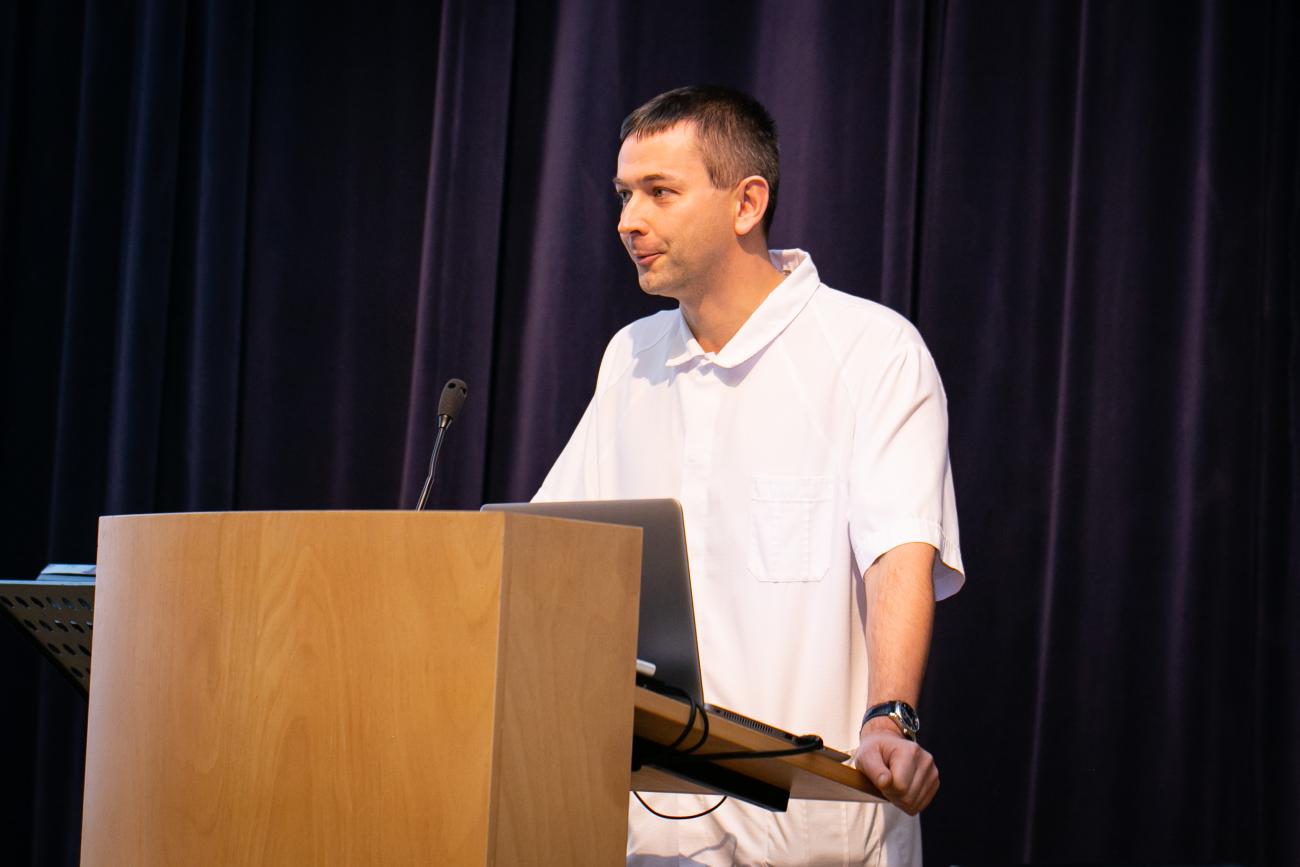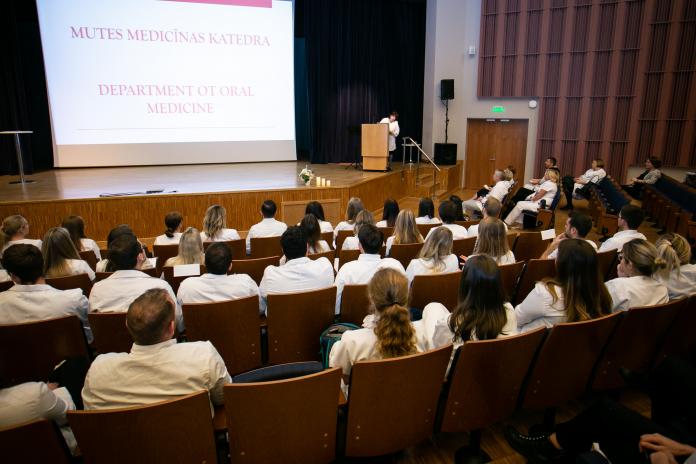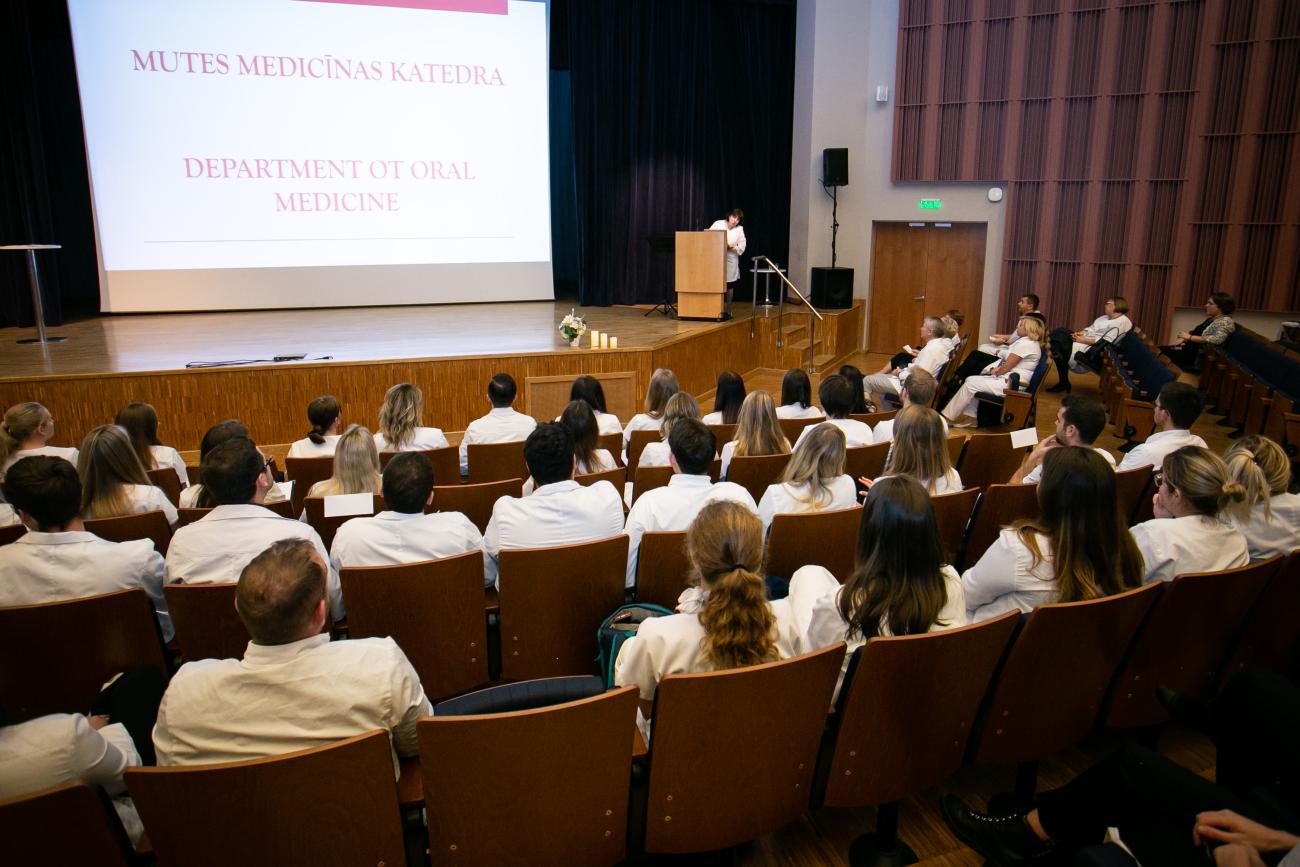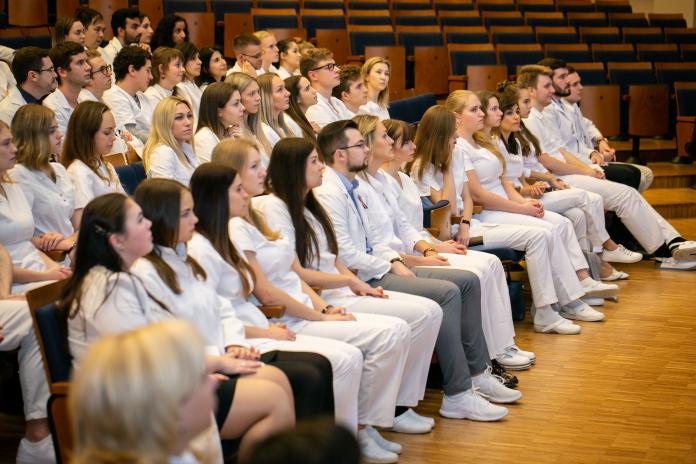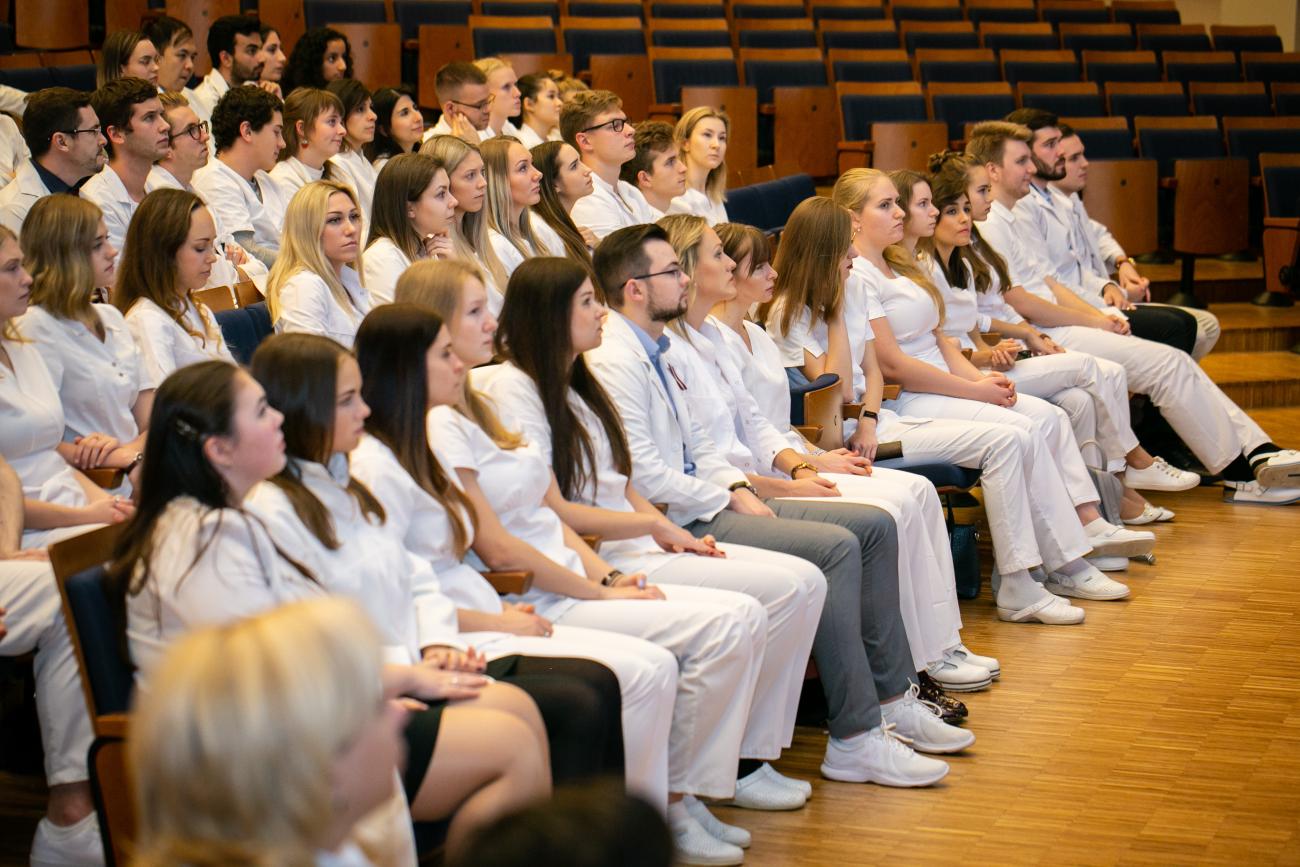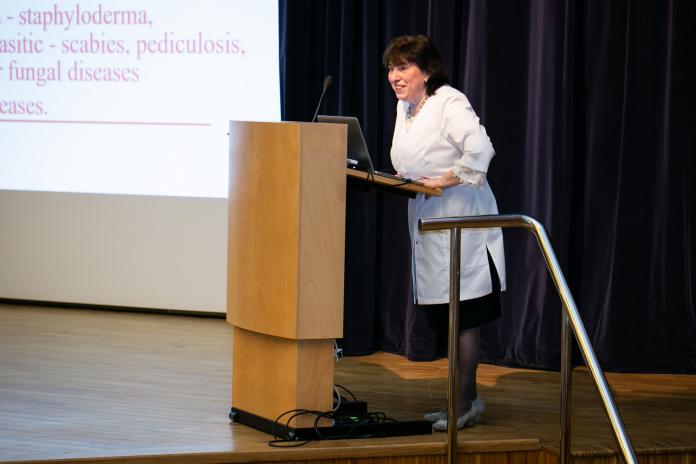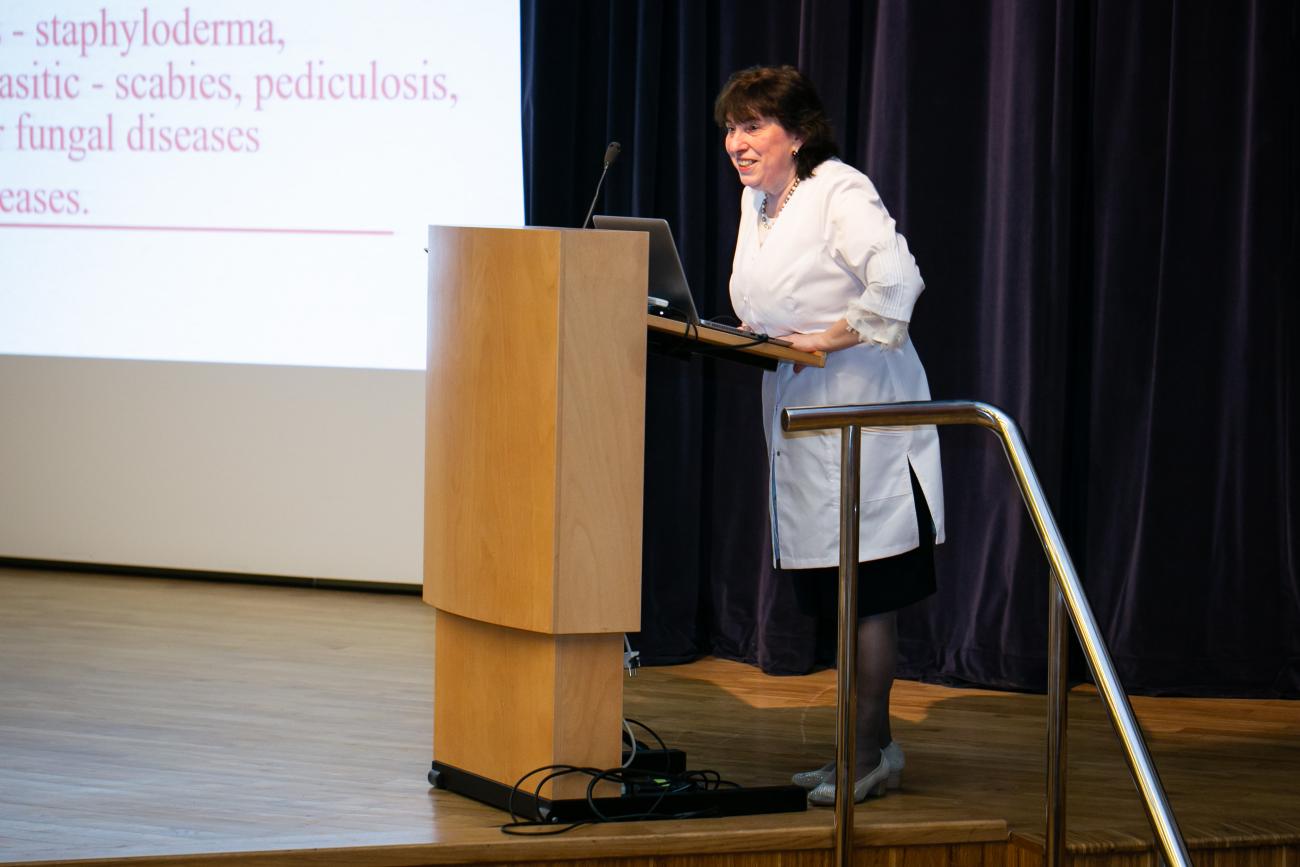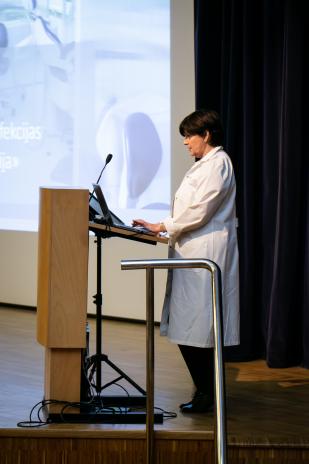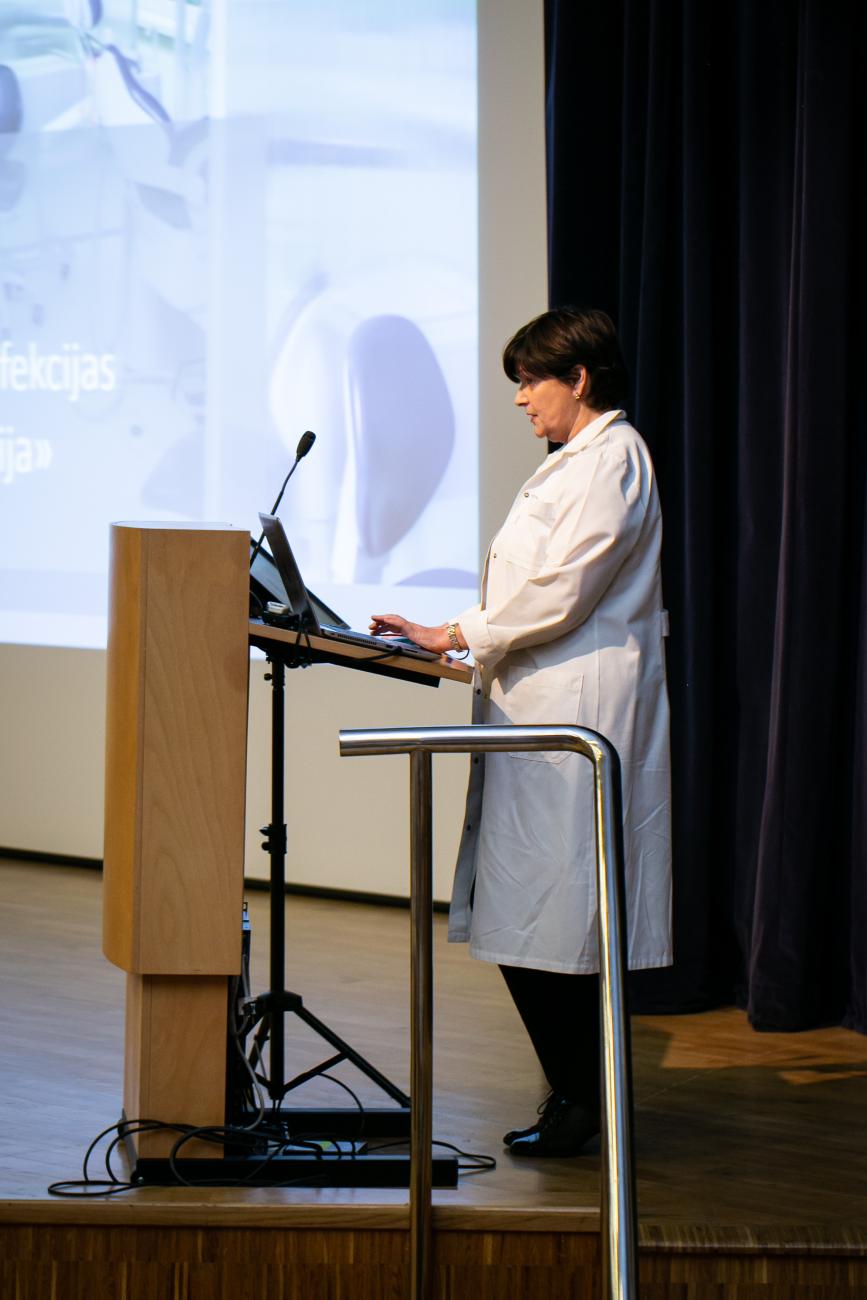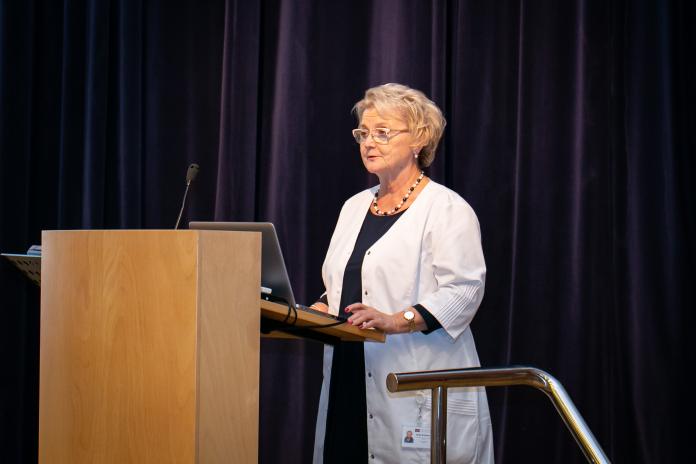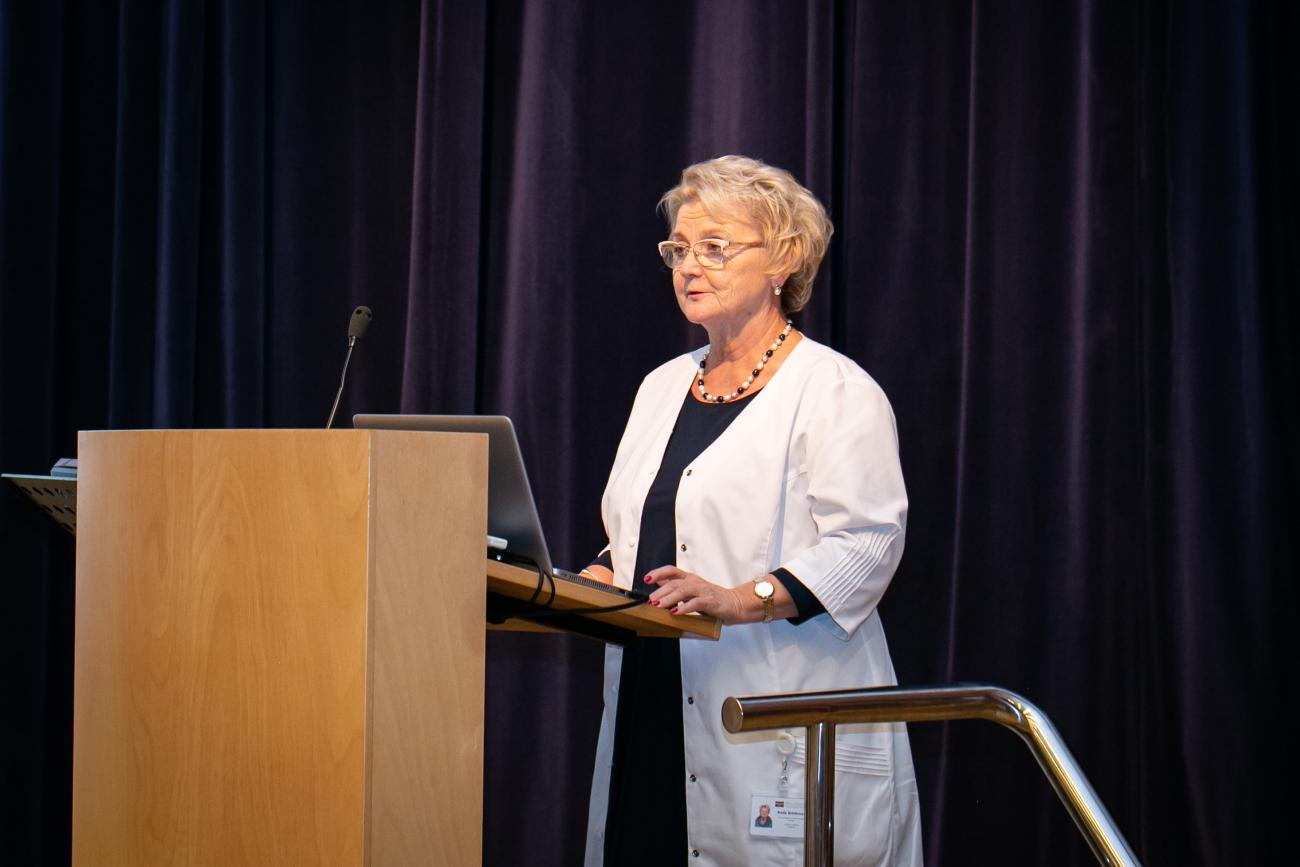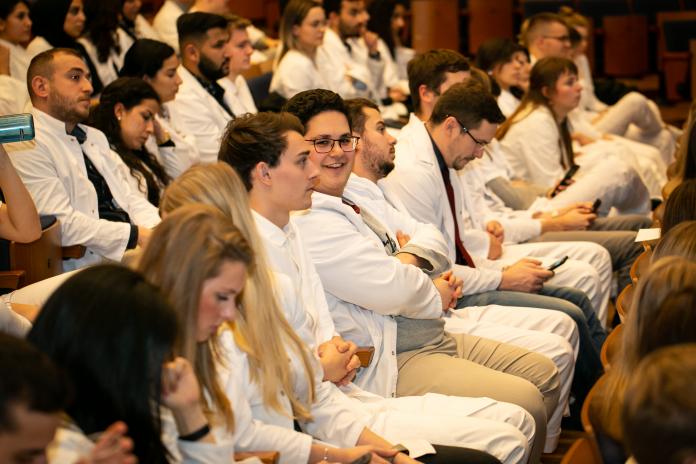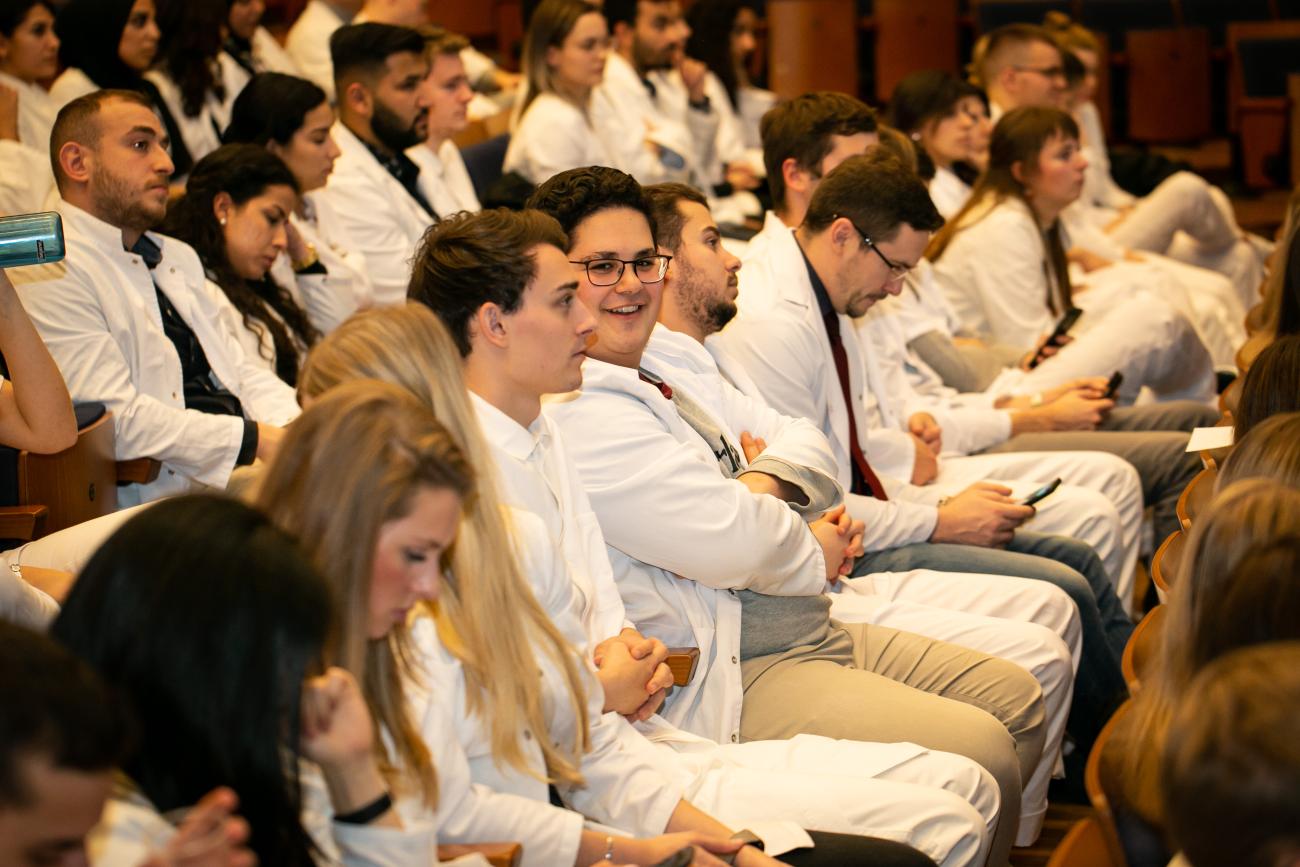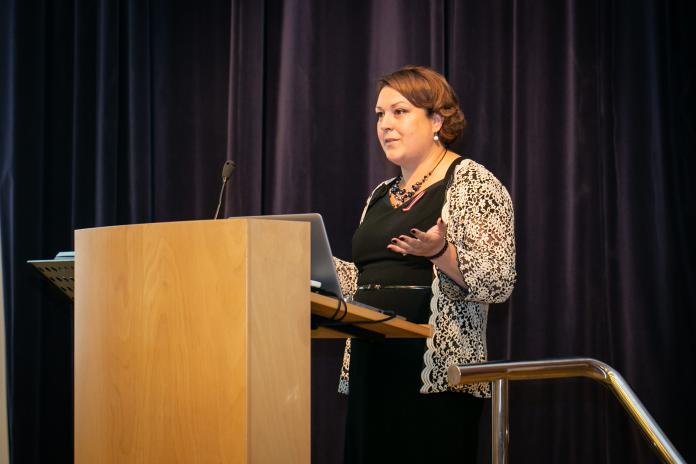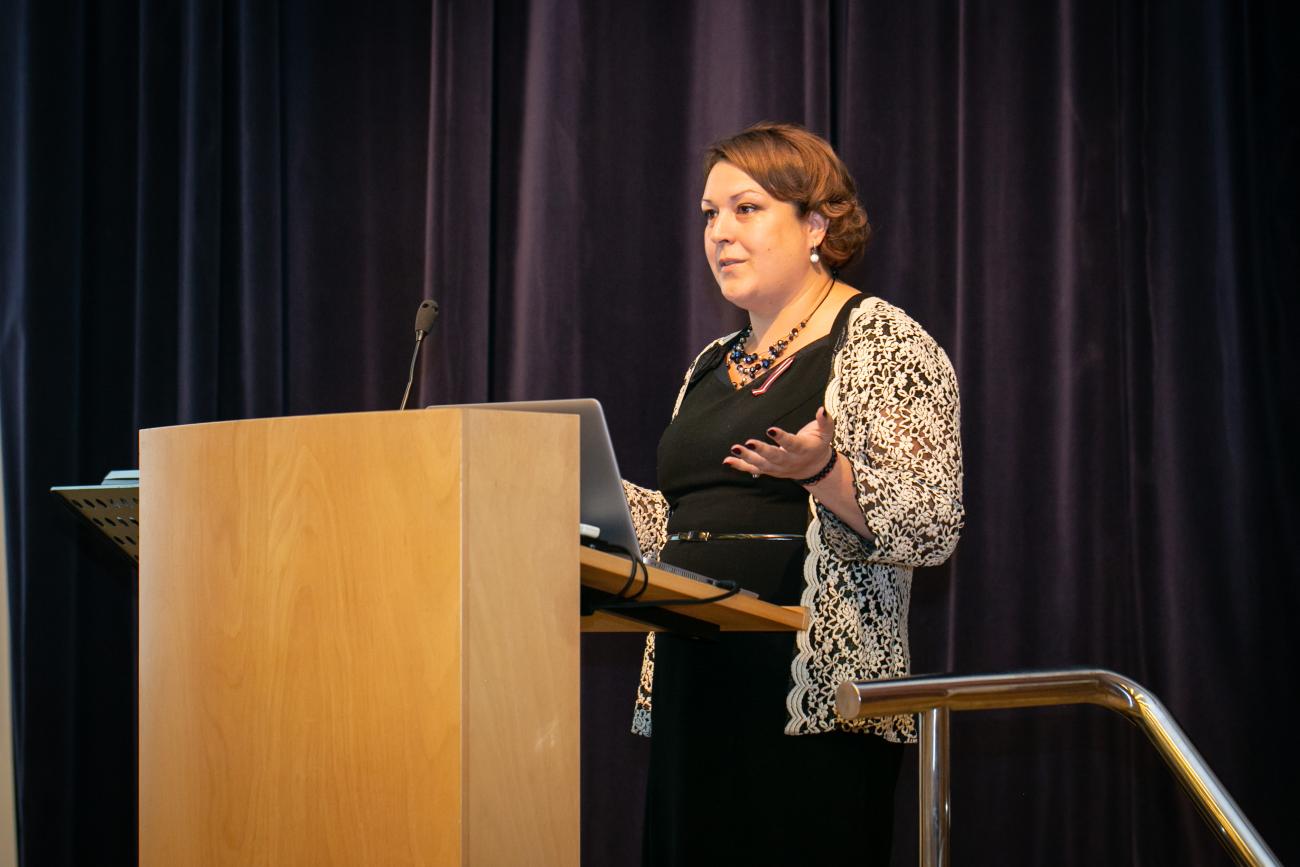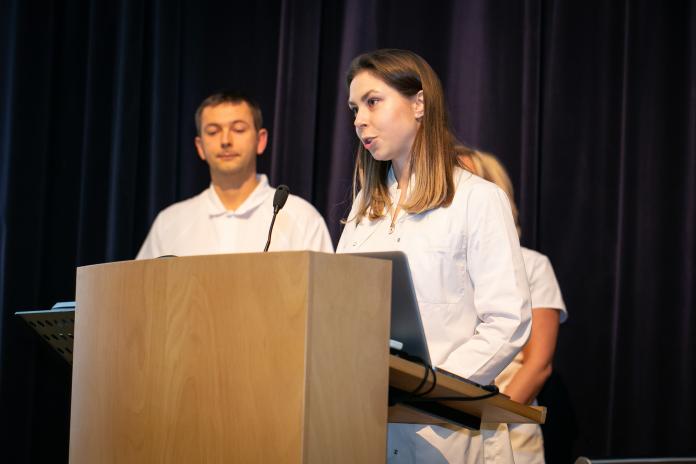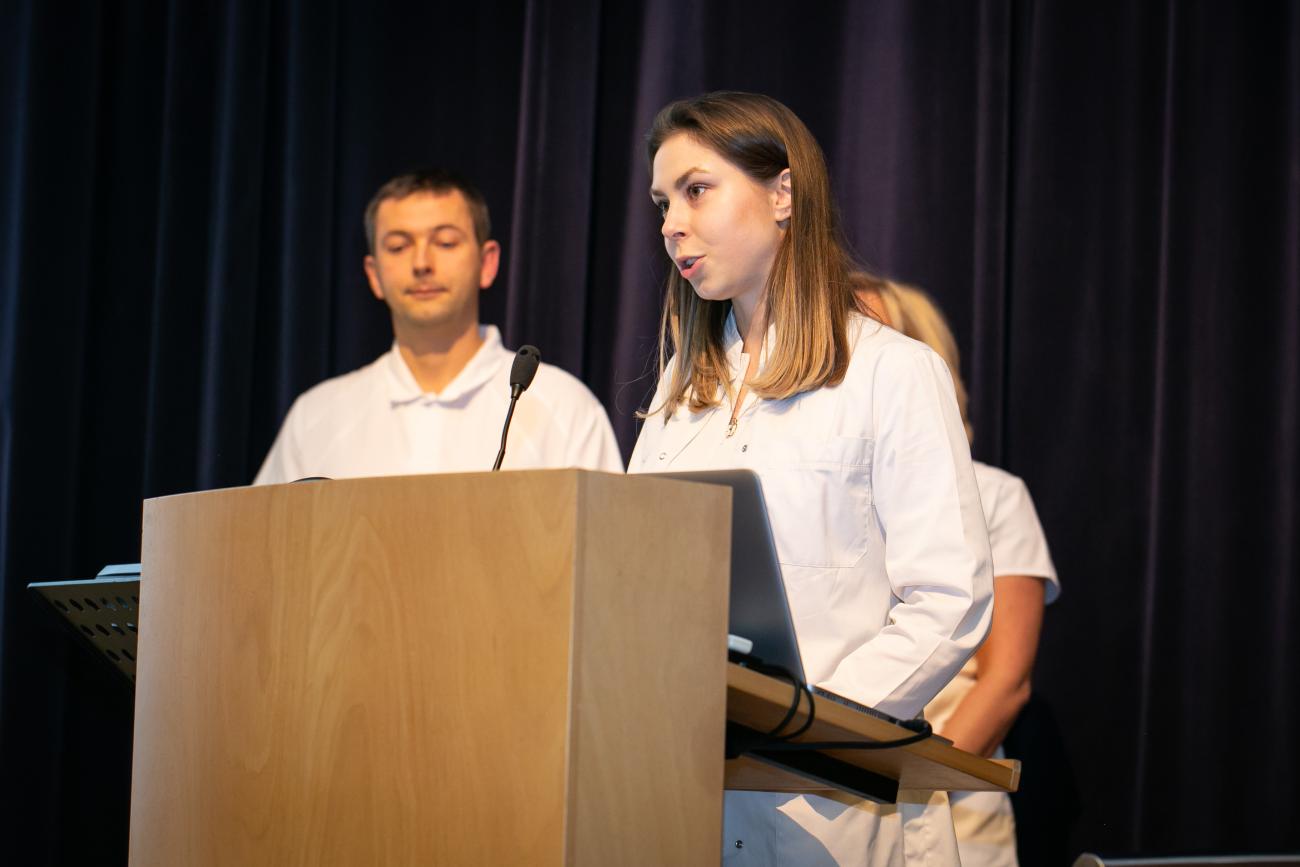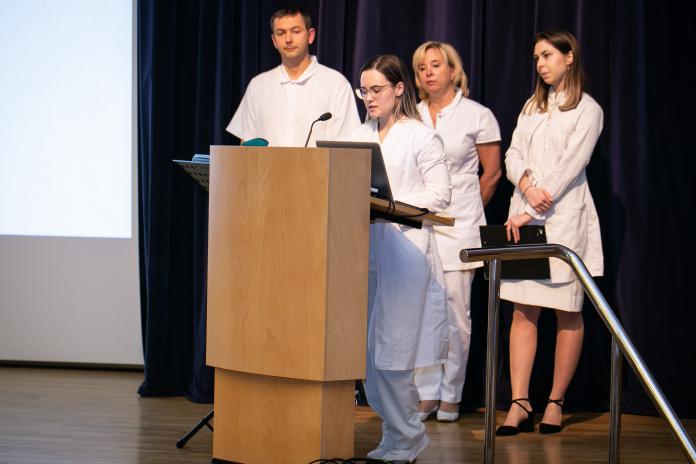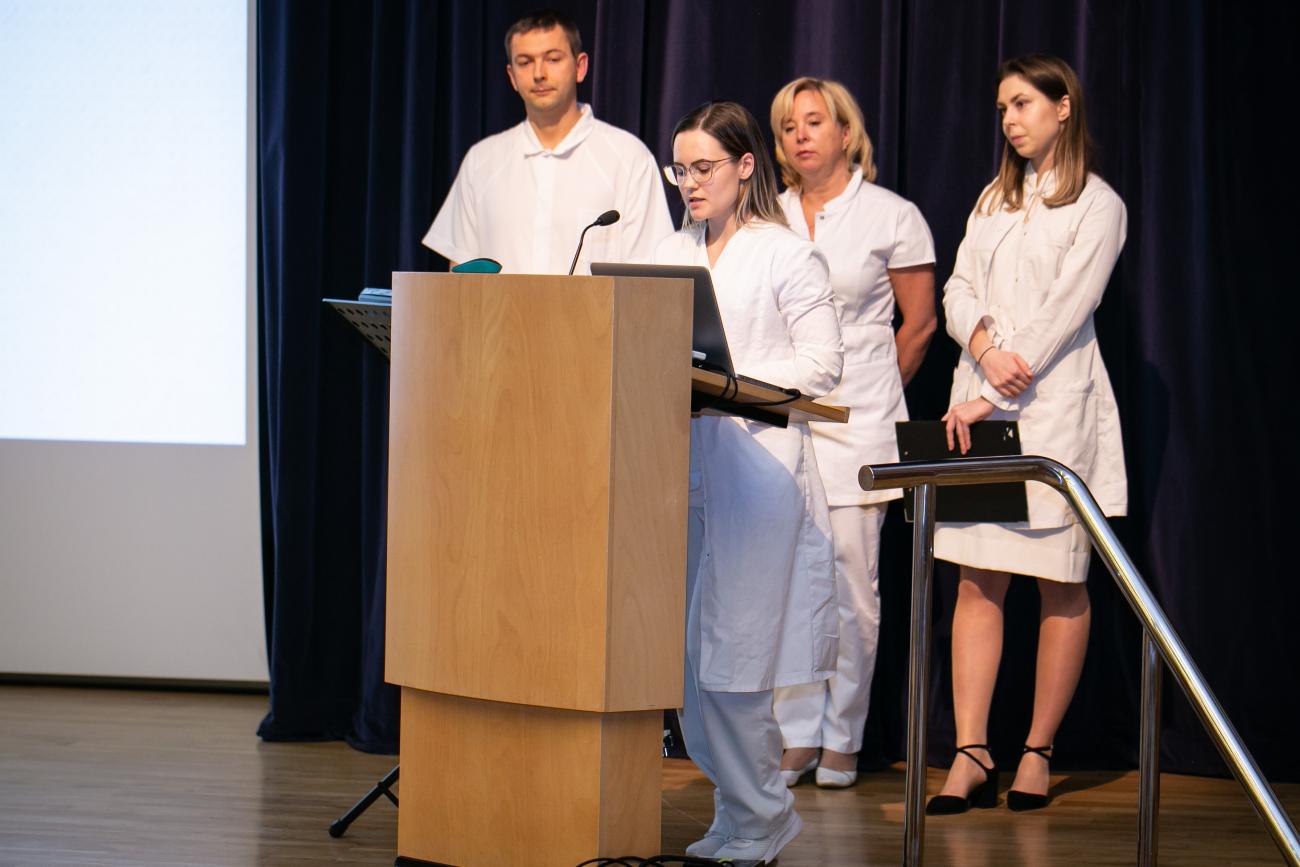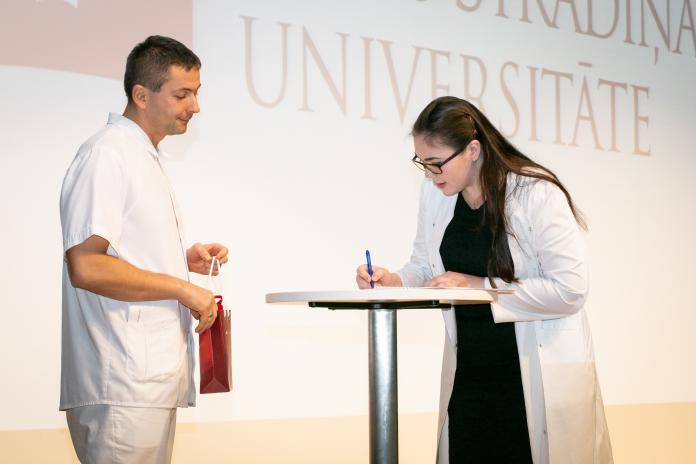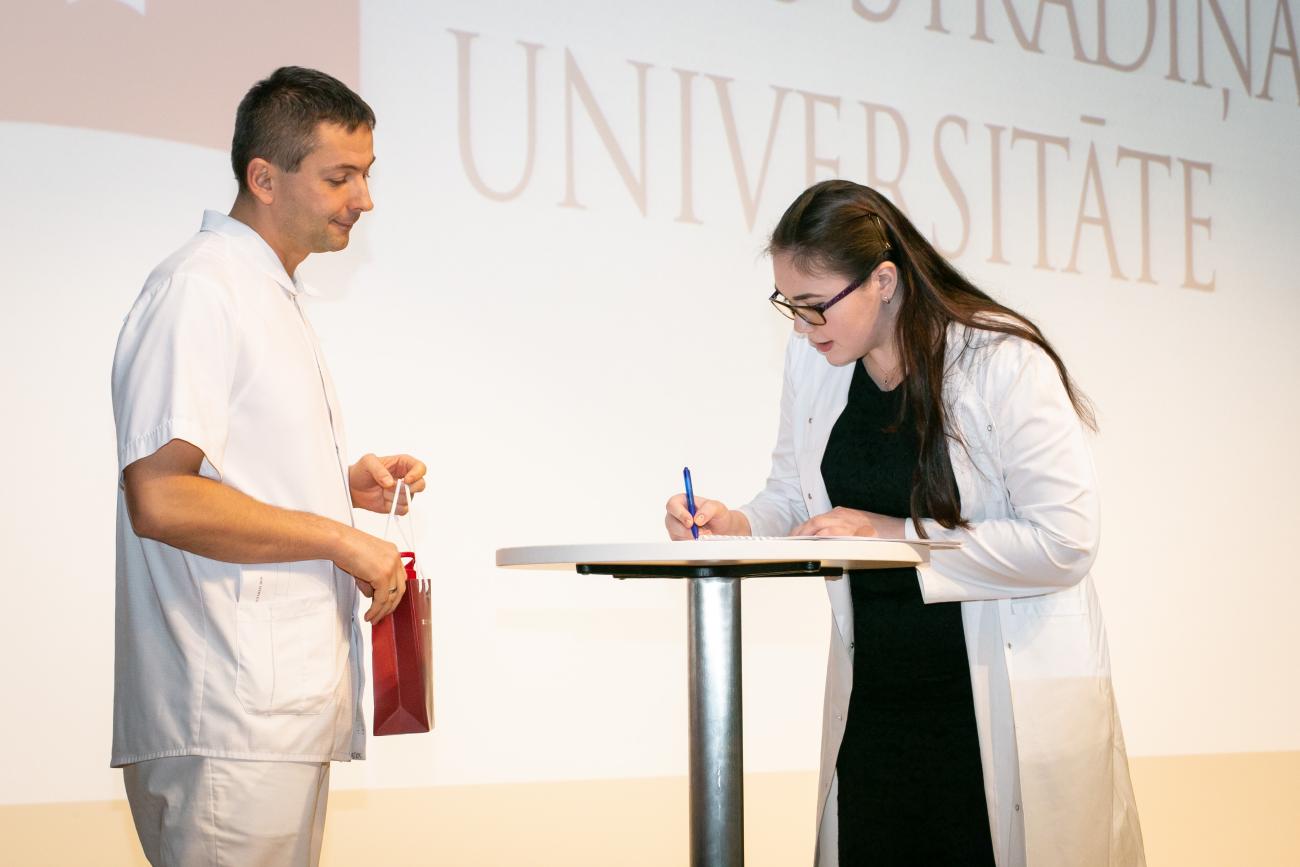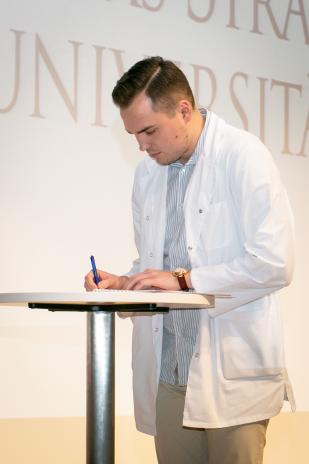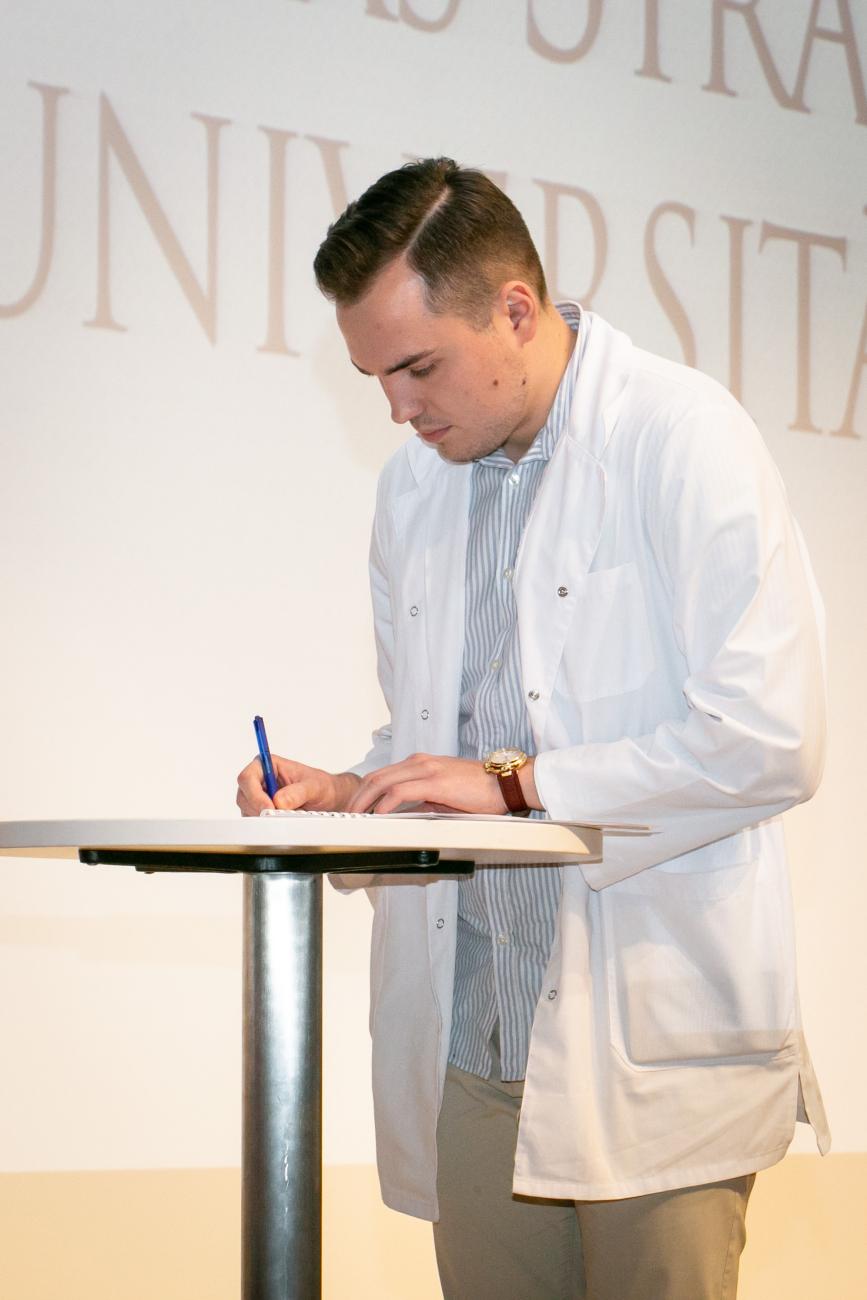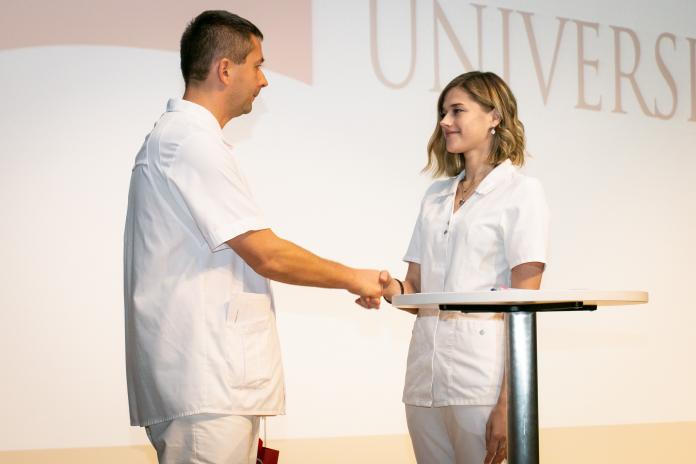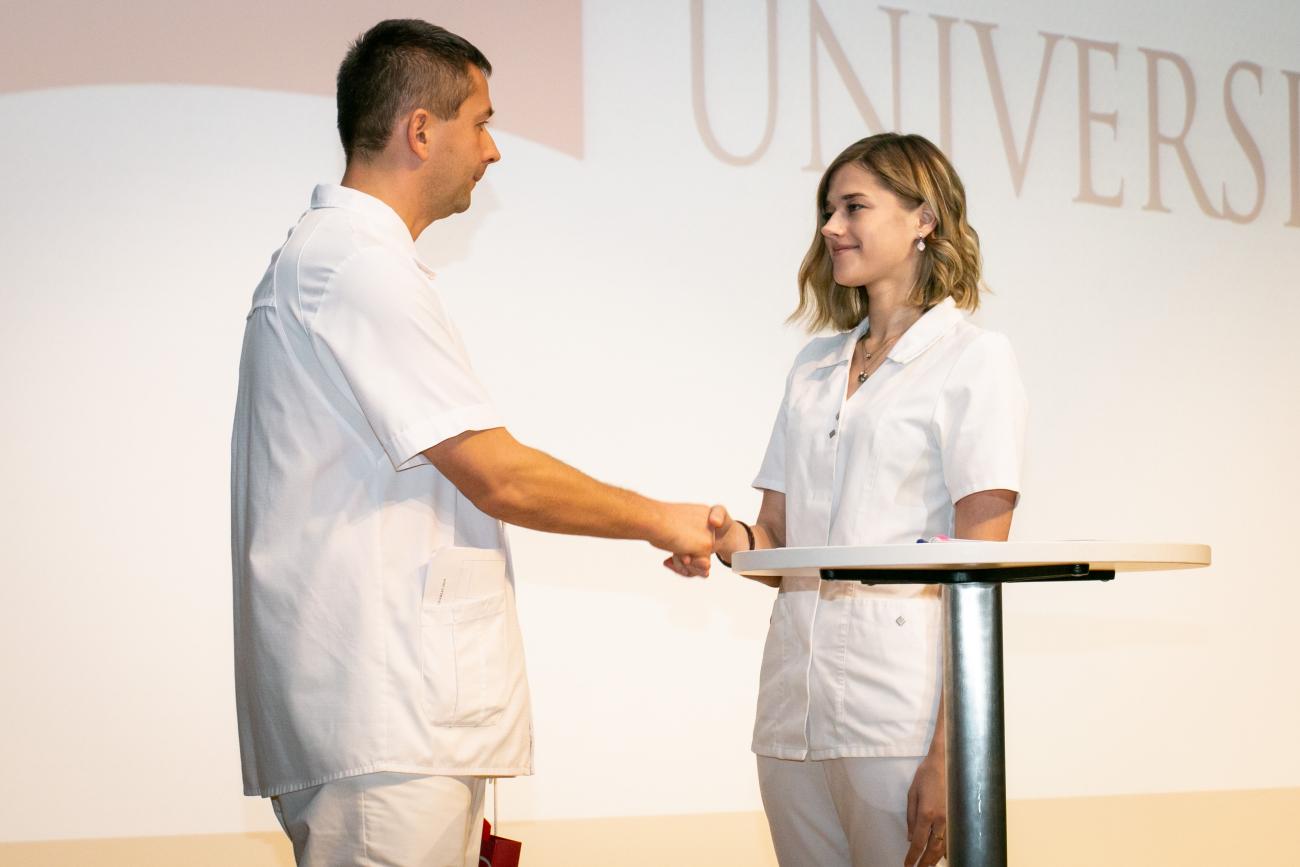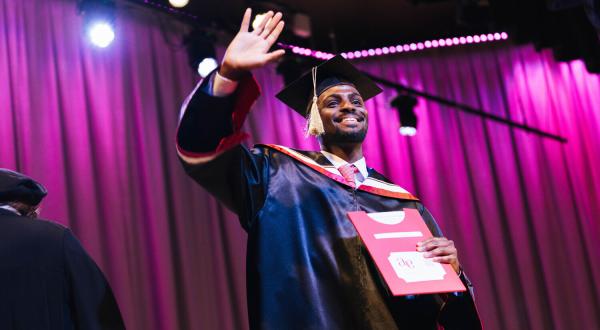2019 White Coat Celebrations of the Faculty of Dentistry
On 8 November, third year students of the Faculty of Dentistry participated in the White Coat Celebration in the Great Hall of Rīga Stradiņš University (RSU). The tradition marks students’ transition from preclinical training with dummies to clinical work with real patients at the Student Clinic of the RSU Institute of Stomatology. More than 90 prospective dentists, both local and international students, attended the event.
During the White Coat Celebration, students make a dentists’ vow as they prepare to join the professional community of dentists. They are also introduced to how work is organised at each clinic and department. They also receive a refresher course to remind them of infection control, ethics, and conduct in clinics before starting their clinical work.
The White Coat Celebration has already become a tradition at RSU. We are proud to say that RSU is one of the few universities in Europe to highlight that working with their first patient is something momentous in a dentistry student’s career. Elsewhere in the world, especially in the US, this celebration has become one of the most important and ceremonial traditions of higher medical education institutions since the 1980s.
The first White Coat Ceremony organised in the United States in 1989 at the Pritzker School of Medicine of the University of Chicago. Nowadays, many medical and dental schools have adopted the tradition – in addition to the US this tradition is observed in Canada, Israel, Great Britain, Poland, and elsewhere. Since 1995, the tradition has spread in the US, and been adopted by other faculties like pharmacy, veterinary medicine, schools of physical therapy and optometry.
The RSU Faculty of Dentistry is one of the oldest faculties at RSU with the richest traditions, and the only one in Latvia to educate prospective dentists. The Dentistry study programme is one of the most popular at RSU which is evidenced by having the most competition for state-funded study places. Students study dentistry for five years and already in their first years they have practical classes in pre-clinical training rooms using special dummies.
